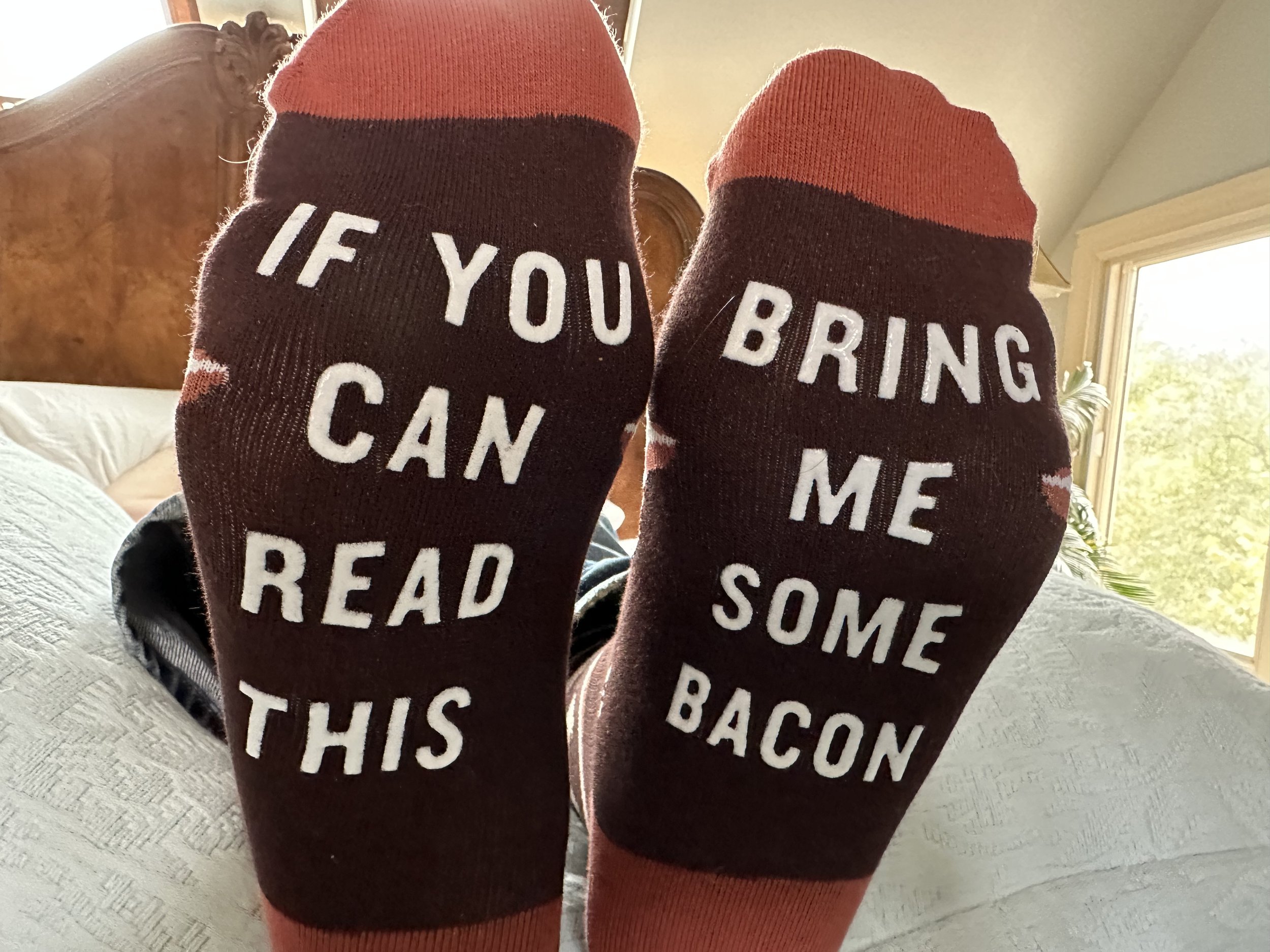What to Put in a Care Package for Hospital “Sitter”/Advocate
When John was in ICU for about 2 weeks after his bypass surgery, and I was unable to leave even to get a sandwich somewhere other than the hospital cafeteria (due to a Covid restriction that seemed particularly crazy), a friend dropped by with a gift bag containing a magazine his wife, who put it together, knew I’d like, all kinds of nice snacks, a pack of tic-tac mints, and maybe a notepad. I can’t remember. But I remember feeling almost like I did the first summer I went away to camp and opened my suitcase to find that my mother had tucked small gifts around the clothes.
Such is the power of care packages to override feelings like homesickness and worry.
Care packages are never wrong or awkward to give. It’s pretty easy to think about a person in a difficult position and collect a few things you believe will make it easier.
If you’re assembling a care package for a friend who’s sitting watch at a hospital—a stressful place, no matter what, if for no better reasons than the lights, the smells, the noises, and the generally awful furniture—here are a few ideas about of what to put in it:
● Snacks that can serve as a meal in a pinch, like packets of almond butter and crackers or decent tasting protein bars, and sparkling or unsweetened flavored water
● Pretzels, popcorn (several bags, if you get the ones that only contain about three bites; try these). John says if the care package is for a guy, get him a giant bag of kettle corn🙄). Popcorn is a great thing to eat when you’re worried.
● A gripping book: When I was staying with my mother during a hospitalization, my brother, who liked to read true crime, brought me Anne Rule’s Too Late to Say Goodbye, and a chunk of those long hours flew. Anne Rule is a terrific storyteller. While the material is not uplifting, it is gripping, and being gripped by something other than your own worry and fatigue is a relief. For a person who is not likely to be gripped but made even more stressed-out by a creepy, murderous dentist, here’s a decent curated list, The Literary Lifestyle, from Jules Buono: https://www.julesbuono.com/books-you-cant-put-down/.
● Self-care items that are not readily available in the hospital sundries store or at the nursing station, like a dry shampoo that doesn’t make your hair white, non-antiseptic soapless wash, and calming teas—my favorite is turmeric and ginger.
● Lavley socks: John’s feet are in the photo above. I like the ones that say “If you can read this, bring me some ice cream.”
● A comfortable eye mask
● A lined notepad and pen for those among us who cannot type at lightening speed on a phone
● Body rub for aches and pains. Sitting for a long time causes achey shoulders—the human body isn’t meant to sit for hours and hours, day, after day, after day.
The best thing you can give, though, is your presence through texts, messages, and calls. Don’t expect an answer; don’t expect to be called back, unless there’s a need to talk something over. Just know that your thoughts and prayers (trite as that phrase may sound, given its massive overuse) will make a difference. Sitting with a loved one at the hospital is hard, especially if they are in critical condition. It’s hard to watch anyone, much less a family member or friend, suffer, and in hospitals you can easily feel out-of-control and ill-equipped to deal with the challenges of acting as a patient advocate. But almost any situation is made better by an act of caring—not changed, necessarily, but made better.
